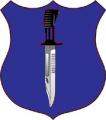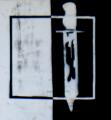SECTION 2 – USING THE MAXIMUM WEIGHT OF FIRE
40. The necessity for maximum effective fire against enemy positions in the assault is generally accepted.
‘In the attack on Takrouna, my men knew they were in for a tough job. I consider that though much of their fire found no targets, the volume of thefire carried my men along.’
41. Well trained and well led infantrymen will engage the enemy at every opportunity, especially when the situation is most critical.
‘When we moved over the area (at Bel Hamed) in which the 20th Battalion
was over*run, we remarked that invariably in each hastily dug slit trench
there was a small pile of expended small arms cartridge cases, and this applied also to mortar pits and gun sites.’
42. Nevertheless, there will always be a small proportion of men who will be reluctant to use their weapons, either through fright, or the feeling of drawing enemy attention to themselves, or through mistaken feelings of humanity.
‘On the Senio, a forward platoon phoned battalion headquarters to say that a
German was lying out in front of their position, and they wanted a mortar concentration on the poor unfortunate. No one seemed anxious to fire a Bren, rifle, or SMG. An order from the commanding officer put this right * and the 'German' was found to be nothing more than a steel helmet!’
43. This hesitation will be greatest among unseasoned troops, and especially among those who have not been fully trained to place confidence in their own weapons.
‘During the 1941 Libyan campaign, I witnessed the phenomenon of a few men
carrying out the attack drill faithfully and yet not even bothering to look up at the enemy whenever they took to ground. They seemed to be just lying
there waiting for the next order to charge. I remember ordering these men
to use their rifles. Now and again they did, but I feel certain to no good effect. At the next stop the same thing would happen again.’
‘In the battle of Tanaheran I attacked with two platoons in jungle warfare.
The men were heavily armed * about four grenades each, 100 rounds per rifle
and a full complement of ammunition for Bren and SMG. At the conclusion of
the battle, the platoon that had borne the brunt of the fight were, to a man,
nearly out of ammunition. These men had been painstakingly trained, time and ammunition being no object.’
44. It is important that the proportion of passengers be kept as low as possible, in order that the great fire potential of the infantry battalion may take its full effect on the enemy.
45. This great volume of fire will normally be supplemented by the heaviest fire support that the formation commander can provide from other sources. It is the primary task of artillery and other arms to provide the maximum available fire support in order to help the infantry forward to their objectives, all other tasks are of secondary importance. At the same time, the battalion commander must appreciate the tremendous firepower that is available under his hand in the unit. If heavier support is not available, for any reason, his own resources are normally sufficient to enable him to get forward against anything but strongly fortified opposition.
‘I am convinced that my own unit was tremendously improved by the period
on the Senio when we had no artillery support. Men developed a new confidence and delight in the Bren, sniping became almost common, and most valuable of all, we suddenly found that we could use the PIAT for a great variety of useful purposes. The PIAT was a great infantry weapon, which we only really used to the full effect in the very last campaign.’
46. A commander may anticipate that about one*quarter of his (infantry) weapons will be effective at any one time in the attack, but this will be reduced in conditions of poor visibility. Infantry moving forward close behind an artillery barrage (leaning on the barrage) may have little necessity to fire, other than to demoralise the enemy further. It is unnecessary to emphasise that every worthwhile target should be engaged, even when opposition is light.















Bookmarks